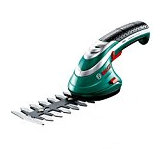Pole pruner purchasing advice: how to choose the right product
- The most important facts in brief
- A pole pruner can be used to cut tree tops up to a height of five metres.
- Most devices have a motorised chain saw at the head end that cuts the branches.
- Motorised pruners are powered by petrol, a rechargeable battery or mains electricity.
- The longer the blade, the thicker the branches the saw can cut.
- When working with a high pruner, you should not only take important safety precautions, but also pay attention to the tree cut.
Aiming high as a gardener
Sowing, watering, weeding and pruning: The daily routine of a gardener is arduous. But with the right tools, not only can the workload be reduced, but the result can also be perfected. For the annual pruning, the high pruner has therefore established itself in the assortment of a well-equipped hobby gardener.
To counteract uncontrolled and unattractive tree growth, you should trim the branches once a year. This will increase the tree’s vitality and prevent pest infestation. With fruit trees, you also increase the fruit yield. To reach the branches in the crown of the tree, we recommend using a pruning saw. This is a saw or chain saw that is mounted on a telescopic pole. Thanks to the telescopic extension, you can reach the higher branches with a secure footing on the ground. Risky gymnastics on a ladder and unhealthy contortions are now a thing of the past. At a height of up to five metres, you can also cut thicker branches without any problems. With the help of the swivelling motor head, you can adjust the device to the tree growth. Although a high pruner has less power than a pure chainsaw, the increased chain speed and the telescopic extension compensate for this disadvantage.
For this reason, high pruners are nowadays not only used by professional landscape gardeners and foresters, but also by hobby gardeners. High pruners for private use are already available for under 200 euros. If you want to trim the trees in your garden once or twice a year, you will find what you are looking for in this price segment. Models for 200 to 900 euros are designed for many years of continuous use and promise corresponding quality.
Pro points
- Cut high branches without a ladder
- Powerful
- Easy handling
- Low weight
Drawbacks
- Less powerful than a pure chainsaw
- High noise level
- Exhausting in the long run
The right model for everyone
High pruners are equipped with a chain saw. The different chainsaw models are further subdivided: You have the choice between petrol, battery and mains operation. Since all models have advantages and disadvantages, the decision for the right high pruner is entirely up to you.
Petrol-powered pruners
Petrol-powered pruners are usually powered by a two-stroke engine. At the front end of the tool is a tank into which you fill the petrol. The piercingly loud engine drives the saw at the head end. The petrol consumption is manageable, which is why you can use the pole pruner for a correspondingly long time, but it also makes for an unpleasant smell. As soon as the tank has emptied, you simply refill it with petrol. Despite the high overall weight, petrol-powered pruners are well balanced. Due to the high power and the duration of use, petrol-powered pole pruners are mainly used in professional areas.
Pro points
- Long operating time
- High engine power
- Optimal weight distribution of motor and saw head
Drawbacks
- Very loud
- Unpleasant smell
- Higher total weight
Mains-powered high pruners
High pruners that are operated with a plug via the mains have an electric motor in the upper end that sets the chainsaw in motion. The electric devices are usually just as powerful as their petrol-powered counterparts. However, they are less flexible because of the cable. Thanks to mains operation, you can use the pole pruner for as long as you like without having to refill the tank or recharge the device.
Pro points
- Very long operating time
- No exhaust fumes
- High engine power
- Low maintenance
Drawbacks
- Comparatively loud
- Tied to power socket
- Unfavourable weight distribution
Battery-powered loppers
Battery-powered pruners also have an electric motor at the top of the shaft that draws its energy from a battery and powers the chainsaw. Devices for hobby gardeners and private users usually have an 18-volt battery installed, while professional and high-end models are equipped with a 36-volt battery. The battery can be removed so that you can replace it at any time. If you have several batteries, this allows you to maintain operation. Battery-powered pruners are a good compromise, as they are less powerful than petrol models, but much more flexible than corded pruners.
Pro points
- Flexible use
- Low maintenance
- Low weight
Drawbacks
- Operating time dependent on battery life
- Unfavourable weight distribution
Multi-purpose tools
If you not only want to cut branches, but also work in other parts of the garden with a pruning saw, it is best to use a multi-purpose tool. The scope of delivery includes various attachments that you can place on the telescopic handle instead of the saw. This enables you not only to cut branches, but also to trim hedges or the lawn, for example.
Alternative to the high pruner: the branch saw
Branch saws have a light tree saw blade with inwardly curved, milled teeth at the tip of the handle. This type of model usually does not have a telescopic extension; instead, the handle is either permanently mounted or it can be replaced as a whole. Thanks to the different, interchangeable handle lengths, you can still reach the uppermost branches of the treetops without any problems. If you only have one or a few trees in your garden and are not afraid of physical work, a pruning saw is a favourable option. The prices of the devices start at around 20 euros.
Pro points
- Lighter than motorised units
- Neither petrol nor electricity needed
- Can be used at any time
- Inexpensive
Drawbacks
- Thicker branches can only be cut with difficulty
- Endurance required for longer work
- Sharpening of the saw blade not possible
What to consider when buying a pole pruner
When buying a high pruner, a few criteria are decisive. Above all, you should pay attention to the dimensions of the telescopic handle, the length of the blade, the chain speed and the cutting head. If you orientate yourself on these points, you are on the right track to finding a high pruner that meets your expectations.
Telescopic pole
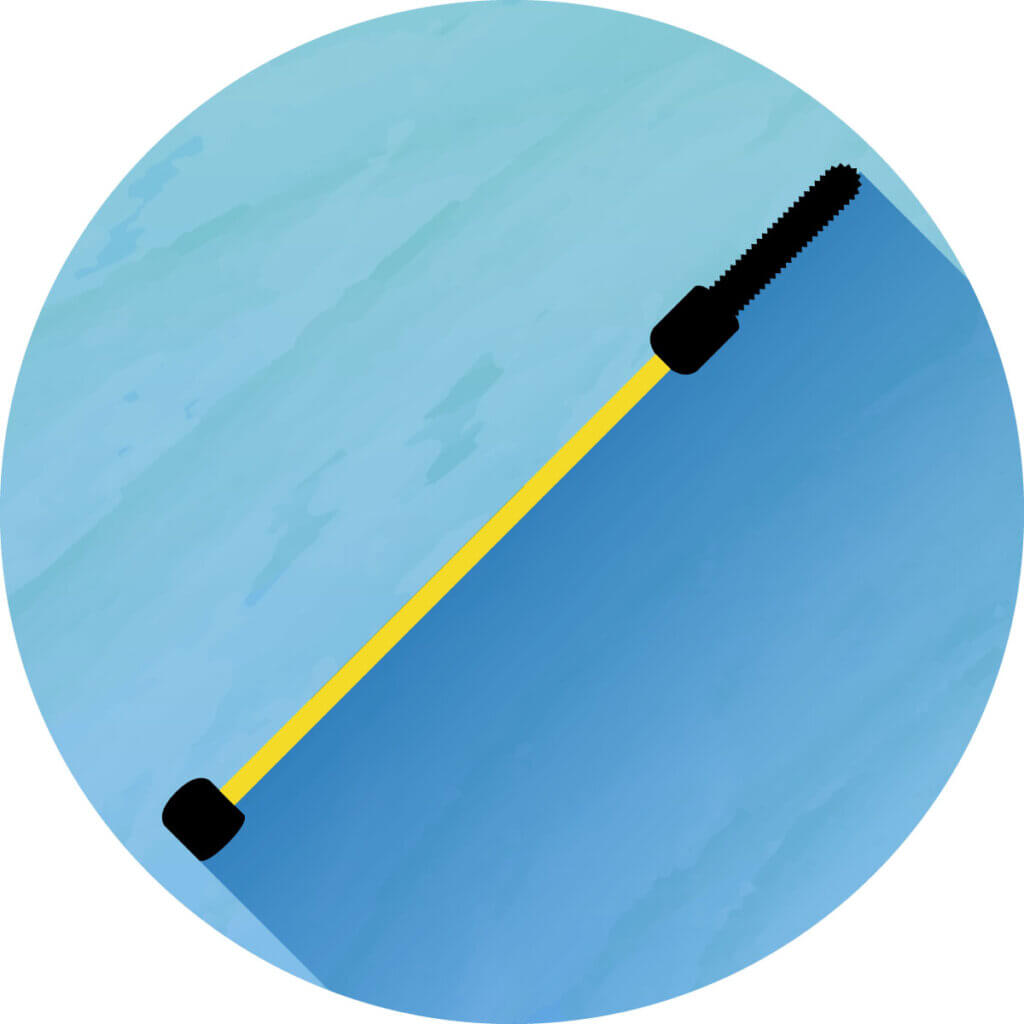
The telescopic pole determines the possible working height. Chainsaw high pruners usually have an extendable handle. Telescopic poles that can be continuously adjusted are particularly recommended, as this allows you to determine the optimum working height yourself. As an alternative, some manufacturers offer rigid extensions, which are common with non-motorised high pruners. The total length of the units when not extended is between 180 and 300 centimetres. With a telescopic pole, you can increase the length to 270 to almost 400 centimetres.
Sword length
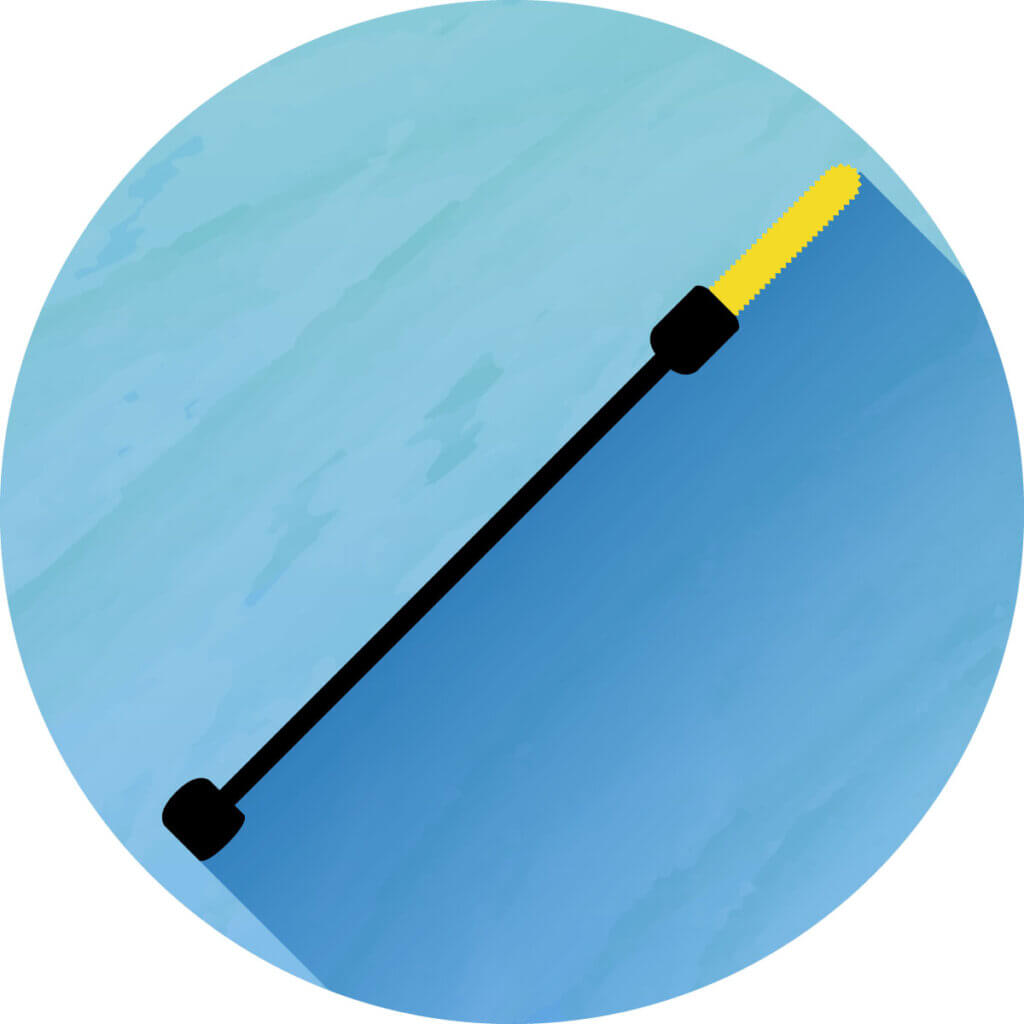
The length of the blade determines the thickness of the branches you can cut. It is usually between 15 and 30 centimetres. The longer the length, the easier it is to cut thicker branches. For example, a blade length of 20 centimetres can cut branches up to 18 centimetres thick. Note that the longer the blade, the heavier the pole pruner, which can have an impact on the work.
Chain speed
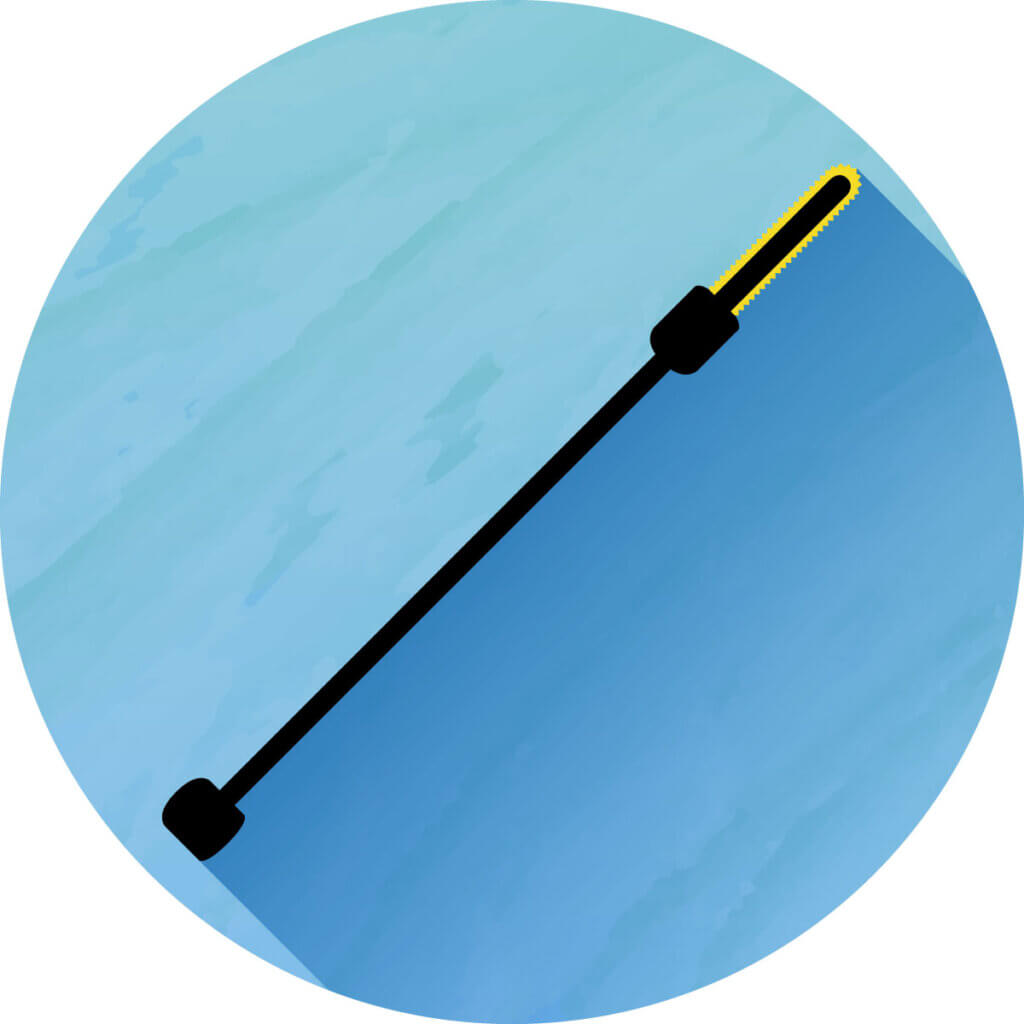
Chain speed, sometimes also called cutting speed, describes the speed at which the chain turns. A higher speed usually equates to an accelerated work process and makes sense if you have to cut several trees. But the chain speed does not give any information about the cutting result to be achieved. For one or a few trees, a low cutting speed is therefore also suitable, as is the case with battery-powered high pruners, for example. The value is given in metres per second and is usually between 4 and 15.
Cutting head

The head end to which the saw is attached should be adjustable. If this is the case, you can set the angle at which you want to saw yourself. With many models, the cutting head can be adjusted in steps; often in up to seven different positions. Optimally, you can also adjust the main handle so that you have additional flexibility in use. With many models, the handle can be adjusted to four different positions.
If you decide on a petrol or battery-powered pruner, you should also take a look at the performance requirements.
Petrol

Petrol pole pruners have an integrated fuel tank that holds between 20 and 120 millilitres, depending on the model. The power of petrol-powered devices is between one and three hp. A larger tank and more power are particularly useful if you want to use the pole pruner for a longer period of time. For occasional users, a different model is recommended instead.
Battery

Most battery-powered pruners have lithium-ion batteries. The voltage for devices for hobby gardeners and private users is 18 volts. On the other hand, 36 to 40 volts can be found in pruners for professional use. Depending on the model, the battery capacity is between 2.5 and 6 ampere hours. You can remove or replace the battery and charge it externally. A high pruner battery has a charging time of 30 to 130 minutes.
For more relief
Depending on the model type, high pruners weigh between three and six kilogrammes. Aluminium frames are the lightest, weighing less than four kilograms. Even if the weight is comparatively low, it can be exhausting in the long run, especially since the device is not always optimally balanced due to the telescopic extension. Some manufacturers offer carrying or pelvic straps with which you can fix the pole pruner to your body. This distributes the weight better and protects both your back and arms.
Ergonomically shaped handles and easy-to-reach controls make working with a pole pruner as simple as possible. In addition, the various elements are easy to operate even when wearing work gloves.
Safety first
High pruners make tree care much safer. Thanks to the telescopic pole, you can work comfortably from the ground and do not have to take the risk of standing on a ladder with a saw. This prevents the risk of falling, allows you to move freely on the ground and avoid falling branches if necessary. Nevertheless, it is important to take some safety precautions before you go after the overhanging branches of your trees with a high pruner.
To ensure your safety, some manufacturers have already built safety features into their products. These include a chain brake, which is also common on conventional chainsaws. Thanks to the brake, the chain does not rotate unless you operate the corresponding lever and start cutting again. Vibration dampening ensures that the pole pruner absorbs less vibration and is quieter in your hands. Once you have finished your work, you should always press the safety switch so that the device does not accidentally switch itself on.
Ultimately, you are responsible for your own safety, so you should take your own precautions when using a pole pruner:
- Keep the device not only far enough away from your own body, but also from other people.
- Check that the area around you is free of branches and other loose objects. Also, pay attention to the cable on mains-powered devices.
- Be careful not to get hit by falling branches.
- Take breaks and do not get distracted.
- Switch off the tool completely as soon as you put it aside.
- Wear appropriate work equipment: ear protection, helmet with visor or separate safety glasses, safety shoes, work gloves and cutting trousers.
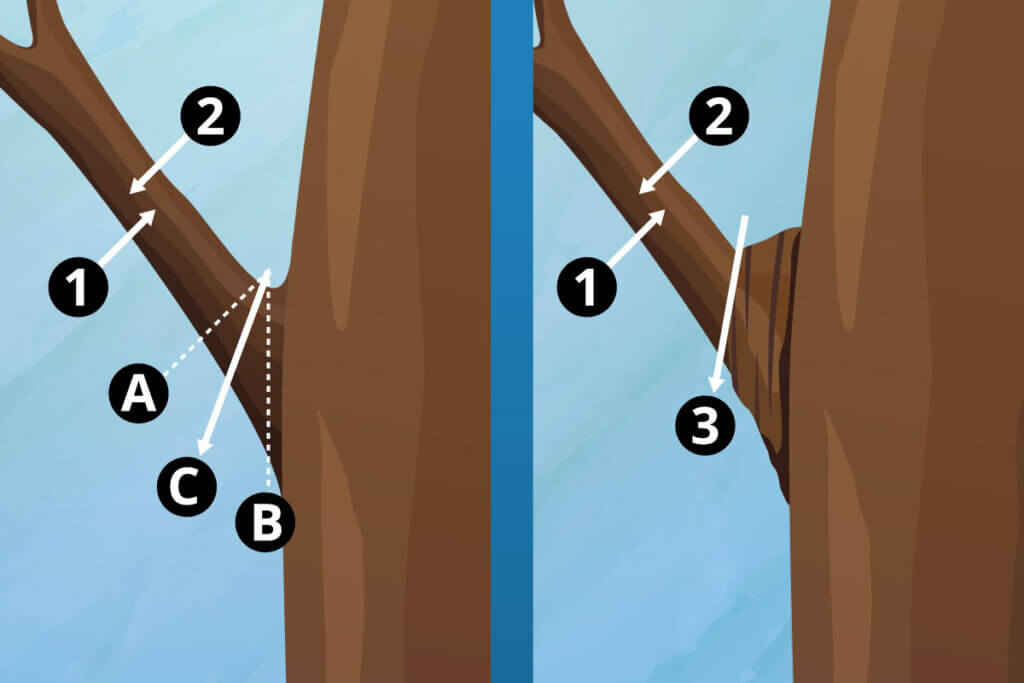
Vitality and aesthetics as purpose: Pruning the tree
As a rule, you should prune your trees once a year to increase their lifespan, prevent disease and pest infestation and increase fruit yield. Remove water shoots, dried fruit residues and branches that lie on top of each other or cross each other, as these hinder each other’s growth. Cut the branches cleanly so that the wound can dry and place the saw directly over the branch ring, otherwise the branch will not grow straight back.
The exact time for pruning depends on the tree species. Winter is usually the time to get the pruning saw out of the tool shed, as at this time of year the branches are easily visible and no birds are nesting in them. Find out in advance about the trees you plan to prune. For example, you should work on deciduous trees in winter and conifers in late summer. There is no uniformity in this respect among fruit trees either: apple and pear trees should be pruned in winter, while peach and cherry trees should be pruned in summer.
As a general rule, you should never prune trees in spring. At this time of year birds nest in the treetops and the trees develop their full vitality. Shortening the branches would only restrict growth. Note that you do not cut the branches in winter when it is frosty and in summer when it is raining. In both cases, the weather conditions would limit the regeneration of the tree and thus also inhibit growth. If you rejuvenate the trees upwards, you will get a well-formed tree crown.
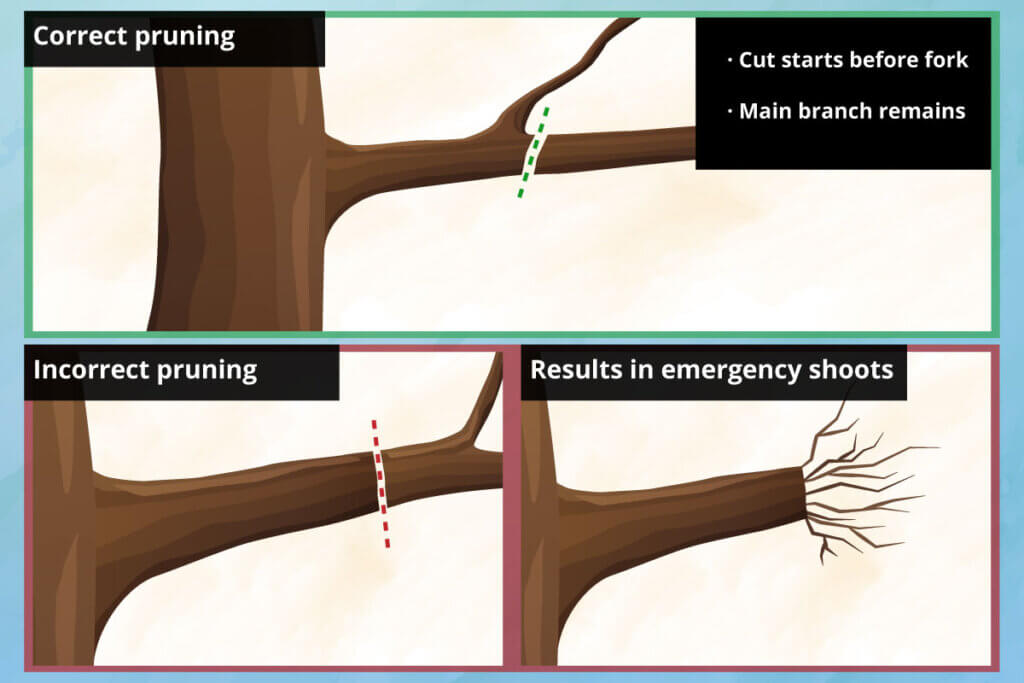
A cheer for care and maintenance
Although hobby pruners are usually of lower quality than professional pruners, with a little care and proper maintenance, your pruner will give you several years of good service.
First of all, make sure that all repair, maintenance and cleaning work is carried out with the power switched off. At best, disconnect the device from the power supply: Remove the battery or pull out the plug or, in the case of petrol highlighters, the spark plug connector. It is advisable to wear work gloves when changing the blade. To get a perfect cut, it is important that you always use a sharp chain. Clean and sharpen the chain after each operation. If in doubt, replace the chain. Regular oiling is also essential, which is why some machines have an integrated automatic chain oiling system. All you have to do is keep an eye on the oil level so that the pole pruner can lubricate the chain automatically.
With petrol-powered tools, you should also always take a look at the engine. Only use clean and fresh fuel. Remove it if you are not going to use the pole pruner for a longer period of time to avoid deposits. With battery-powered devices, you should pay attention to the storage of the pole pruner: Units with rechargeable batteries should be stored in a dark, dry and frost-free place. Do not expose the pole pruner to temperatures below 5 or above 30 degrees Celsius.

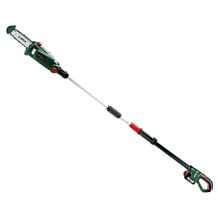
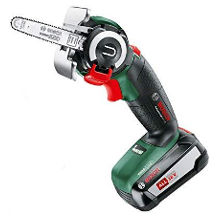


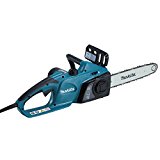
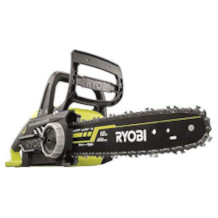
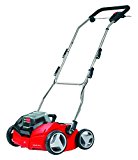
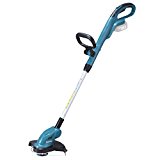
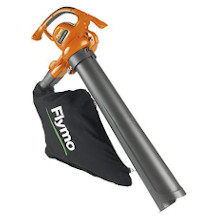
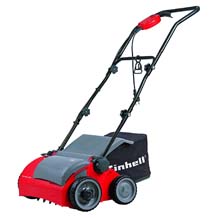
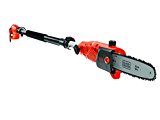
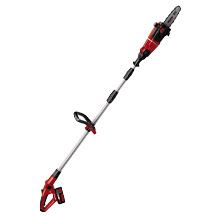
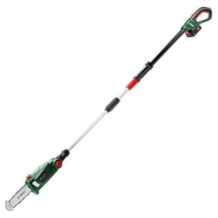
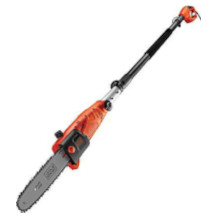
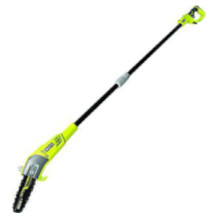
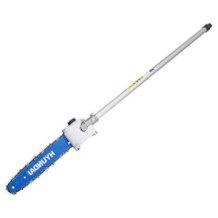
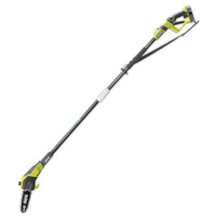
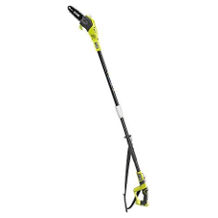
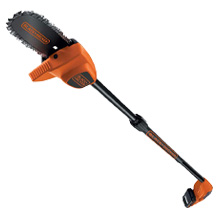
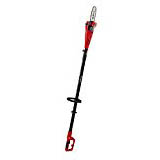
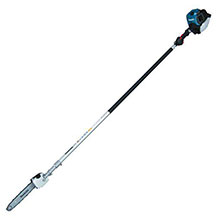
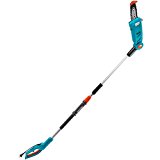
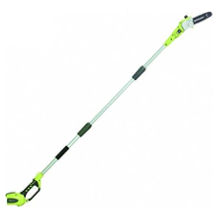
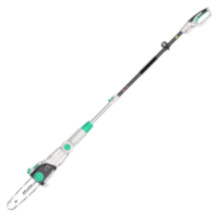
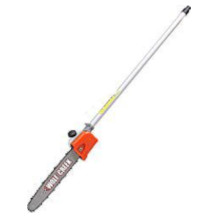
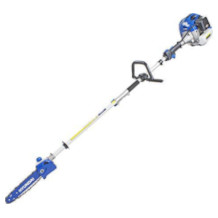
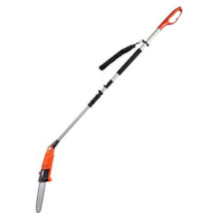

 1,467 reviews
1,467 reviews




